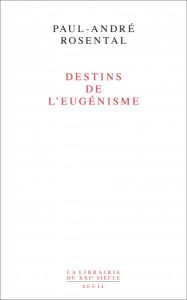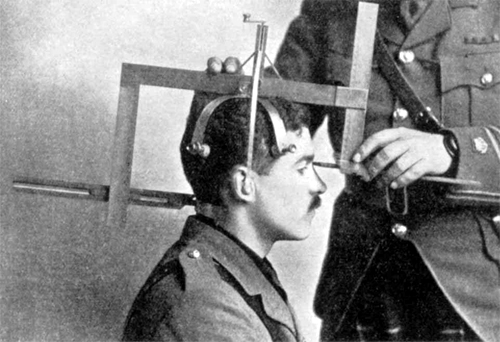


Minimum Wage and Inequality
7 June 2016
A different approach to political competition
22 June 2016While the history of eugenics initially emphasized its totalitarian and criminal applications, new questions have emerged since 2000. How did this scientistic and non-egalitarian ideology mark democratic societies and inspire health policies, as well as education, career guidance and population management policies?
Paul-André Rosental’s book Destins de l’eugénisme  (Seuil, 2016) starts with the micro-historical case of the Ungemach garden city in Strasbourg. Established in the 1920s, it purported to be a “human laboratory” seeking to “accelerate the evolution of the human species”. It offered exceptional accommodations to couples selected on the basis of eugenics in exchange for their commitment to procreate. Couples who were slow to have children or beyond childbearing years, saw their lease terminated…
(Seuil, 2016) starts with the micro-historical case of the Ungemach garden city in Strasbourg. Established in the 1920s, it purported to be a “human laboratory” seeking to “accelerate the evolution of the human species”. It offered exceptional accommodations to couples selected on the basis of eugenics in exchange for their commitment to procreate. Couples who were slow to have children or beyond childbearing years, saw their lease terminated…
The value of this experiment in understanding the political history of France lies in its longevity and status. Ungemach came under the direct administration of the municipality in 1950. Its provisions remained in effect until the 1980s. How was such an endeavour able to continue in republican France for forty years after 1945 with the support of political, administrative, judicial and academic authorities? Paul-André Rosental provides a detailed answer to this question.
First, he dates the appearance of a “selective model” in France to World War I. Falling birth rates had been followed by slaughter: France emerged from the war with the idea that it could compensate for the insufficient number of men and women through optimal allocation. The applied sciences of selection codified individual physiological, psychological and intellectual qualities in order to guide school enrolments, allocate the workforce and promote “healthy and fertile” stock, that is, couples deemed most likely to give birth to high quality offspring. In the 1930s, under the Vichy regime, this project formalized when US-inspired “reformed” eugenics fuelled a plan to “improve the population” in France.
But the greatest convergence of the Ungemach experience and national public policies occurred after World War II, as the eugenic model continued to be fully operational. After the Liberation, high officials partly saw the creation of social security and democratization of education as means to improve the population. Director of social security Jacques Doublet even devoted a long article in 1952 to affirming that all social policies were eugenic.
This model became a victim of its success. Split between several ministries, it started dissolving in the 1960s. Beginning in the 1980s the charge that eugenics was a unilaterally dangerous ideology completely muddied the waters: in France, as in the rest of the world, it was criticized for its association with socio-biology. As a result, it was forgotten that since the beginning eugenics was at least as much a moral theory as a biological one. Thus, eugenics went on to contribute to the psychology of personal development, a key element of today’s secular culture.
Juin 2016



